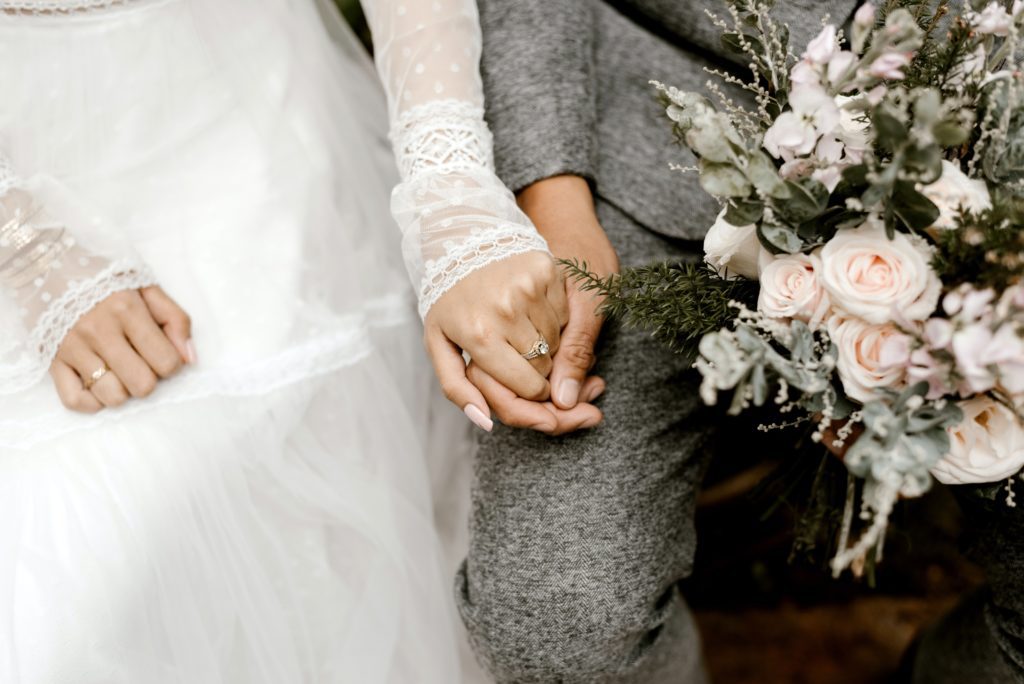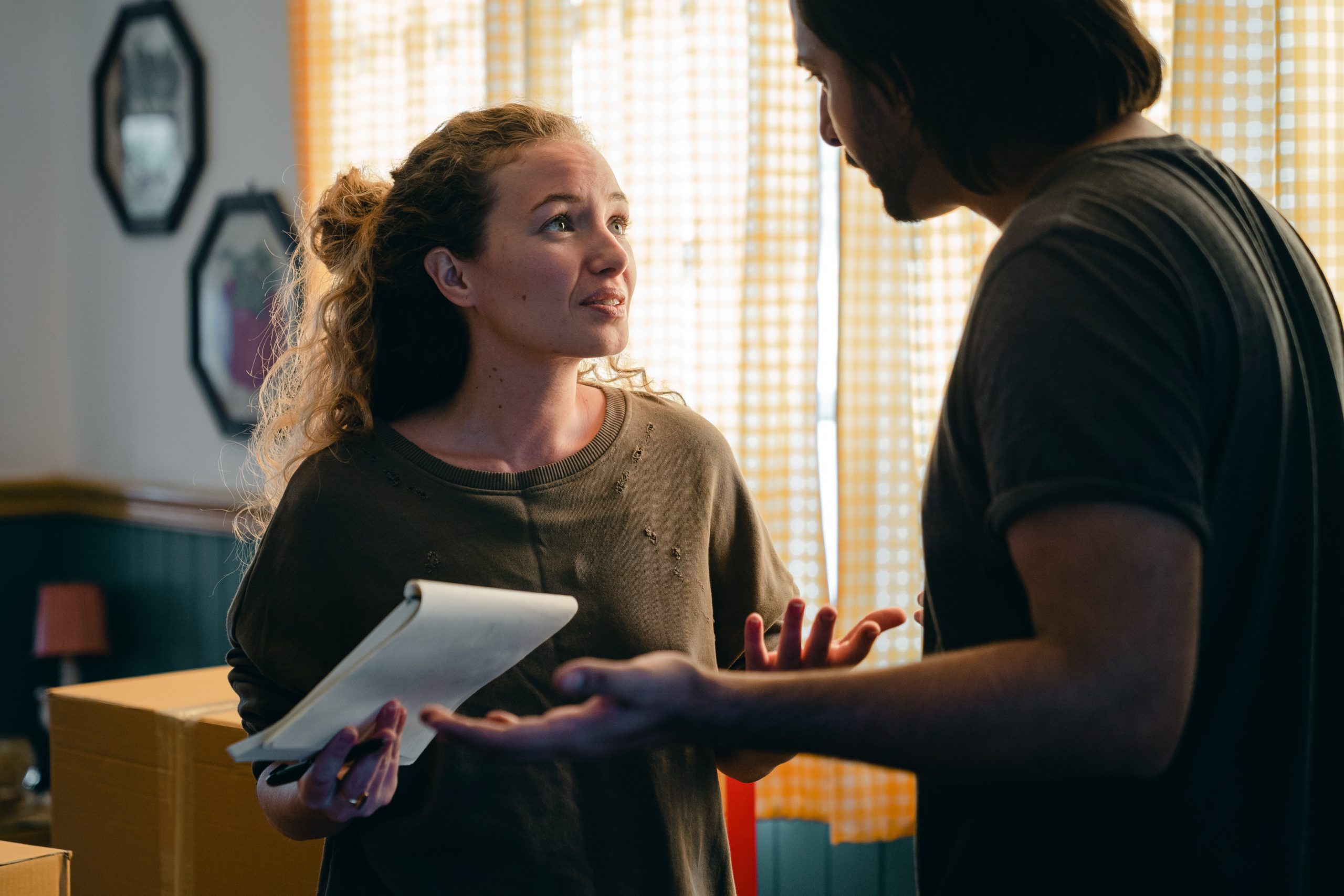Planning a wedding often increases our stress level and, for some, causes higher-than-normal levels of anxiety. For many, that stress and anxiety significantly decreases after the wedding day, but for some, it remains or can even increase after. Why?! This article will explore some ways post-anxiety may present itself and provide tips & strategies to help you navigate this possibly challenging time.
What is Post-Wedding Anxiety?
Post-wedding anxiety is a term used to describe worry, nervousness, or fear experienced by people after their wedding day. While these feelings are normal, some may experience them at a level that causes distress and impacts their day-to-day lives. The anxiety can be focused on the wedding itself (e.g., “I should have chosen a different dress,” “No one had fun at the wedding”) or, with the wedding over, it can be the surfacing of new fears centered on this new chapter and the marriage itself.
Signs and Symptoms of Post-Wedding Anxiety
How do you know if you have post-wedding anxiety? Well, the signs and symptoms can vary from person to person. Some common signs and symptoms may include:
- Excessive anxiety or worry
- Difficulties controlling that worry
- Having trouble sleeping
- Easily fatigued or more fatigued than usual
- Difficulty concentrating
- Irritability or mood swings
If you are feeling any of the above signs or symptoms for an extended period and/or they are affecting your day-to-day life, it may be time to seek professional help.
Tips and Strategies for Managing Post-Wedding Anxiety
If you’re sure that what you’re experiencing is post-wedding anxiety, don’t worry because there are some things you can do to help reduce the anxiety. Here are some tools to manage post-wedding anxiety.
- Acknowledge Your Feelings
The first step in managing post-wedding anxiety is to identify and acknowledge your feelings. It is not uncommon to feel uneasy or anxious after your wedding day, and it is really important to recognize that these feelings are valid. Avoiding your feelings may bring quick relief, but it’ll hinder you from making true progress forward. Identifying your feelings is the first step in better understanding what triggers and maintains your anxiety and then how to address them.
- Breathing exercise
Have you noticed that when you’re feeling worried or fearful, you may take more shallow and quick breaths? This sends a signal to our bodies that danger is on the way and increases our anxious feelings, creating a vicious cycle. But you can break that cycle by retraining your breath through a simple, daily practice. Find a moment in the day to focus on your breath and to implement deep breathing (aka diaphragmatic breathing) exercises, such as box breathing. The more you practice, the easier you’ll be able to use this tool in moments of anxiety, decreasing the impact and time you experience those feelings.
- Relaxation strategies
One way to experience an overall better quality of life is through some relaxation exercises. A few relaxation techniques you can try out are guided imagery, progressive muscle relaxation, or guided mindfulness exercises.
- Talk to Your Partner
The next thing to do is communicate your feelings with your new spouse. Your spouse may be experiencing similar feelings and may be able to provide emotional support. Talking things through is a great way to feel validated and heard, especially by someone so close to you. Not only that, but open communication can also affect the relationship for the better by bonding over sharing your feelings.
- Take Time for Yourself
Take some time for yourself to relax and unwind after the wedding. Whether it’s relaxing on the couch for a whole day with no responsibilities, a spa day, a weekend getaway, or even a walk in nature, taking time for yourself can help reduce stress and alleviate post-wedding anxiety.
- Practice Good Sleep Hygiene
Having a good night’s sleep goes a long way. There are studies that show good sleep hygiene is an essential part of managing post-wedding anxiety (or any anxiety, for that matter). This may include going to bed earlier, decreasing screen time before bed, staying on a consistent sleep schedule, and making sure your environment is conducive to good sleep.
- Stay Physically Active
Studies also show that regular exercise has been linked to a reduced number of anxiety symptoms, such as those associated with post-wedding anxiety. How? Well, staying physically active can release endorphins, leading to improved mood and reduced anxiety. Now, you don’t have to go join a CrossFit gym and immediately start high-intensity training; you can do something as light as walking for 30 minutes a day or a 30-minute yoga class on YouTube.
- Socialize
People underestimate the power of socializing. Spending time with loved ones is a fun way to reduce anxiety and take your mind off your worries for a while. You may even find relief in discussing your problems with your friends/family because they may have felt the same exact way after getting married! Or find others to connect with online, like Pace groups.
- Seek Professional Help
And last but certainly not least, it may be time to seek help, especially if your post-wedding anxiety is severe or prolonged or starts affecting your daily life. A therapist can help you understand your feelings and develop coping strategies to manage post-wedding anxiety. You may even opt for a psychiatrist who can help you in other ways, including prescribing medication if necessary.

Frequently Asked Questions (FAQs) about post-wedding anxiety
Q: Can post-wedding anxiety happen even if our wedding was perfect?
A: Of course. Post-wedding anxiety isn’t always tied to what happens on the wedding day; in fact, it may be completely unrelated. Post-wedding anxiety can oftentimes be related to the realities of “normal” life kicking in and experiencing a new chapter in your life.
Q: How long does post-wedding anxiety last?
A: It can vary from person to person; for some, it can last for a few days to several months or longer. It’s highly recommended to reach out to your doctor or seek professional medical care if you have any individual questions, especially if you notice that your symptoms persist or cause disruption to your daily life.
Q: Is post-wedding anxiety normal?
A: All feelings are normal! Post-wedding anxiety is a common feeling experienced by many newlyweds. You’ve just experienced a life-changing event, so feeling a mix of emotions is typical.
Q: How can I communicate with my partner about my post-wedding anxiety?
A: Think about your ideal communication style and your partner’s. Make sure to approach the convo when you’re both in a good headspace and in a neutral setting. Utilizing strategies such as “I” statements (e.g., “I’ve been feeling anxious…”) and having a few specific requests on how your partner can support you can also be beneficial. Also, don’t pressure yourself to do it all in one conversation; give yourself and your partner the space to have an ongoing conversation.
Q: Can post-wedding anxiety impact my relationship?
A: Post-wedding anxiety can impact your relationship if it is severe and not managed properly. This is where tips for managing anxiety come into play, and eventually, even seeking out professional assistance before it gets to the point of impacting your relationship.
Conclusion
Anxiety, whether it’s before or after the wedding, is no walk in the park! However, there are some helpful ways to manage it, such as through feeling identification, breathing/relaxation techniques, practicing good sleep techniques, and leaning into your support network. But there are times when anxiety isn’t manageable on your own, and that’s okay; these are the times to seek professional support, such as a licensed therapist, to develop more individualized strategies for your situation. You don’t have to do this alone, and getting help from a therapist, counselor, or psychiatrist can help you move on to this beautiful next chapter in your life.

Dr. Vivian Oberling is the Founding Psychologist at Pace Groups. She is also a licensed clinical psychologist who has dedicated her career to improving the lives of clients across the lifespan. Background-wise, she’s been trained and worked in academic centers and hospitals (Stanford, Harvard, UCLA, Kaiser and Rady Children’s), and utilizes evidence-based treatments and research to enhance non-clinical, supportive services.

0 Comments